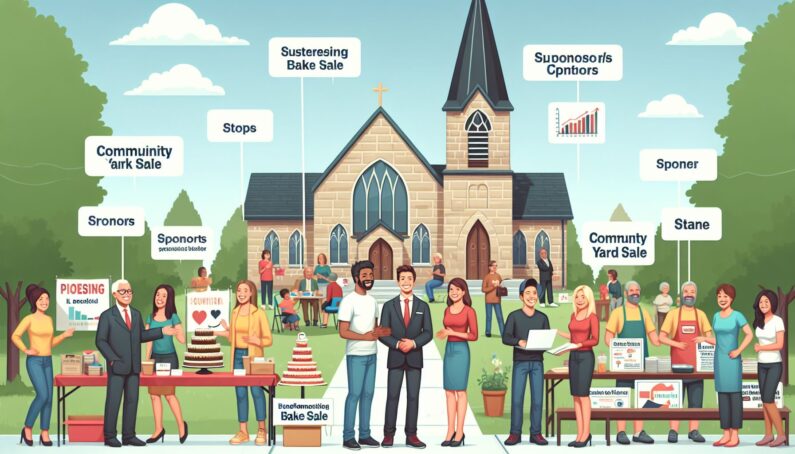In today’s world, where profit and success dominate our daily lives, it may come as a surprise that churches can also play a significant role in driving financial progress. While the primary purpose of the church is to provide spiritual guidance and nurture a community of believers, it is undeniable that churches have the potential to generate revenue for business owners in various ways. This article examines the intersection of religion and business, exploring how churches and their activities contribute to economic growth.
The Business of Organized Religion
Organized religion, in many ways, operates like a thriving business. Just like any successful enterprise, it requires financial resources to maintain its operations. These resources often come from the generosity of churchgoers who donate funds to support the church’s mission.
Tithes, a form of giving based on biblical teachings, play a fundamental role in generating revenue for churches. Believers willingly contribute a portion of their income, typically 10%, to support the church’s expenses and fund its various activities. The consistent flow of tithes provides churches with a stable income, which can be invested in initiatives that benefit both the spiritual and economic growth of the community.
Church Activities and Economic Impact
Beyond the financial support from tithes, churches host a myriad of activities that create opportunities for local businesses. Events such as weddings, baptisms, and funerals often take place within the church grounds, boosting the economy of the surrounding area. Restaurants, catering services, florists, photographers, and musicians are just a few examples of businesses that benefit from the demand generated by these celebrations and ceremonies.
Moreover, churches can serve as catalysts for economic development by fostering social cohesion. The strong sense of community that churches cultivate can lead to the establishment of local businesses that cater to the needs and desires of their members. As the social fabric strengthens, so do the prospects for local entrepreneurship.
The Power of Faith-Based Tourism
Religious tourism, driven by pilgrimages and visits to revered sites, is a thriving industry worldwide. Churches and religious landmarks draw millions of visitors each year, generating substantial revenue for the local economy. Business owners in these areas, such as hotels, restaurants, souvenir shops, and transportation services, reap the benefits of the continuous influx of religious tourists.
In addition to generating income, faith-based tourism also fosters cultural exchange and understanding. Visitors often form deep connections with the communities they visit, enhancing the relationships between people from different backgrounds and promoting mutual respect and appreciation.
Maximizing the Church-Business Relationship
While the financial benefits of churches to businesses are evident, it is crucial to maintain a balanced perspective. The ultimate goal of the church is not financial gain but the spiritual well-being of its congregants. As business owners, it is important to approach this relationship with humility and respect. By understanding and aligning with the core values of the church, businesses can forge meaningful partnerships that benefit both parties involved.
As the world evolves, so does the role of the church in society. Churches are embracing technological advancements, utilizing social media platforms, and offering online donation options to adapt to the digital age. These new avenues provide even more opportunities for businesses to reach a wider audience and engage with churchgoers effectively.
Conclusion
Churches are not solely spiritual institutions; they also have the potential to generate revenue and contribute to economic development. By understanding the intertwining of religion and business, one can appreciate the countless benefits that churches bring to local economies. Through tithes, community events, and faith-based tourism, churches provide business owners with opportunities to thrive. However, it is essential to approach this relationship with reverence and ethical considerations, ensuring the values of the church are upheld. As society progresses, it is crucial to recognize and embrace the harmonious potential between matters of faith and matters of business.
